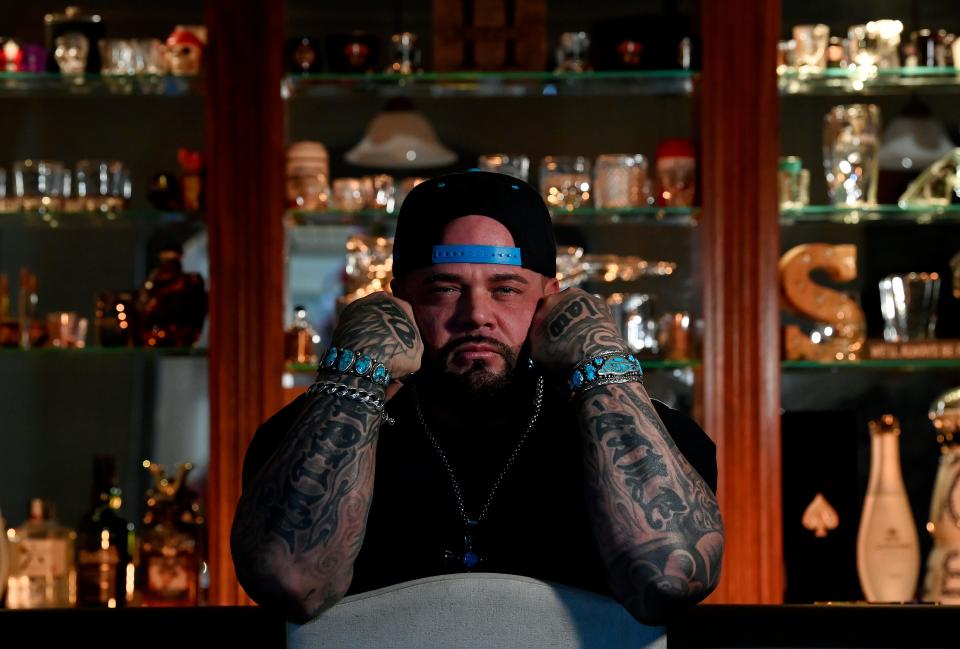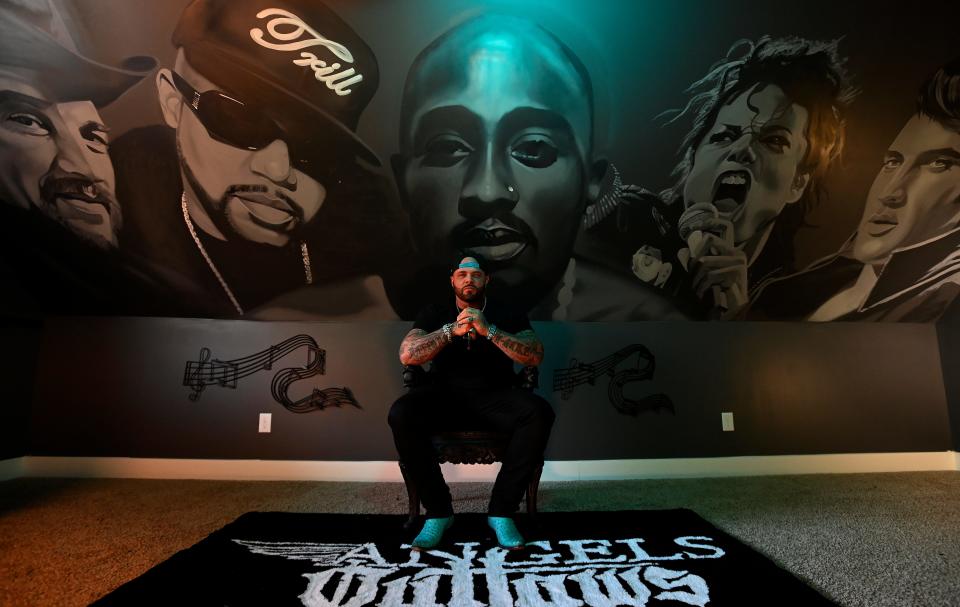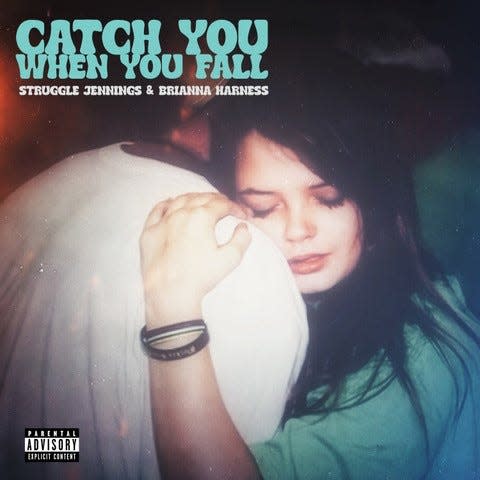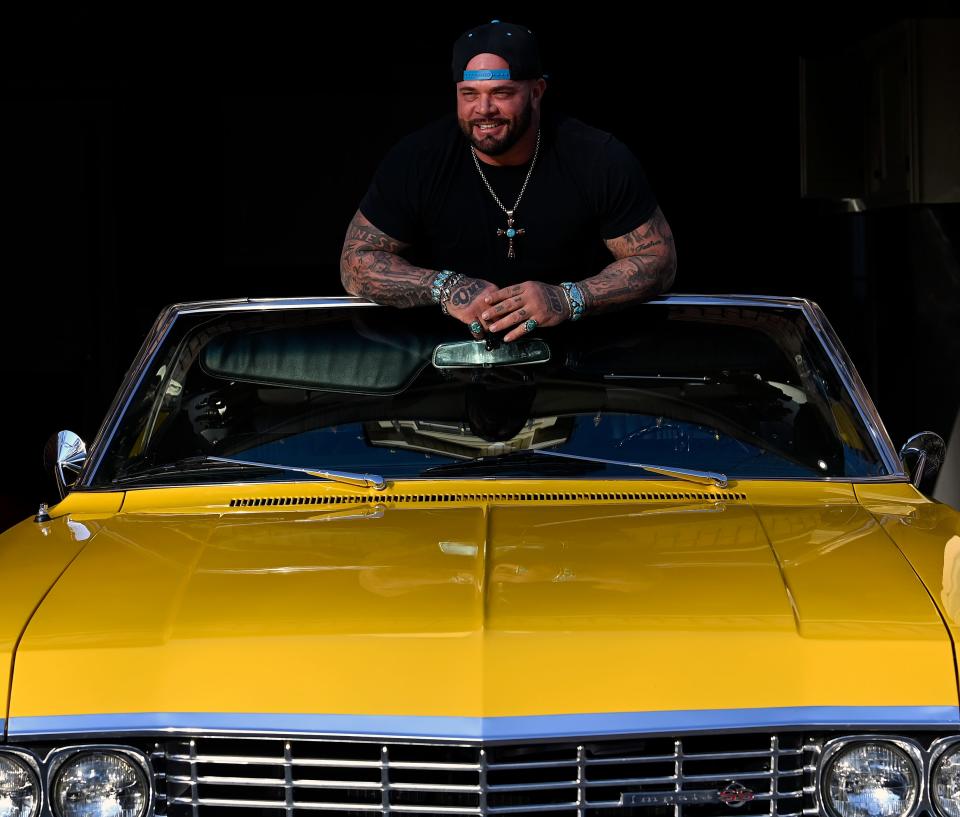Struggle Jennings on 'purpose over popularity,' growth in hip-hop-inspired country music
William Curtis Harness Jr. is a formerly incarcerated suburban husband, father of 7 and a small business owner. The Hendersonville, Tennessee, resident has six automobiles parked in the front driveway of his two-story and five-bedroom home.
He is a gruff-voiced aspiring bodybuilder and heavily tattooed former cigar and cigarette smoker. Notably, Harness — often seen wearing plentiful turquoise and silver jewelry and matching turquoise ostrich-skin cowboy boots — has an unhitched mini-trailer in his front yard emblazoned with the phrase "Outlaw S***."
A decade ago, as his rapper alter-ego Struggle Jennings, Harness — while imprisoned in the Davidson County Jail facing drug charges (for which he was later convicted and served a sentence until 2016) — sneakily recorded a music video for his single "Black Curtains."
The song was from his most significantly promoted rap album to date. It sampled the work of his legendary Country Music Hall of Famer step-grandfather, Waylon Jennings and Grammy-winning grandmother, Jessi Colter.

At only 43 years old, Jennings led a life that, even if he were twice his age, would seem impossible. And now, he finds himself positioned squarely at the increasingly busy intersection of hip-hop culture and country music's outlaw fringe.
Of generational trauma, true tall tales and 'purpose over popularity'
Jennings spoke to The Tennessean prior to the 2024 release of his 11th album, "El Camino," while at his home's dimly-lit bar stocked with spirits, including expensive bottles of Armand de Brignac Ace Of Spades champagne and Clase Azul Reposado tequila.
Two decades of his life have been spent releasing rap music often aimed at healing generational trauma.
He was glib when asked why his career — and those of artists erring on the rap-adjacent side of Nashville's country music machine — has been largely independent and underground.

Jennings believes country music's 2010s-era boom placed a premium on young male artists tethered to hip-hop culture's corporate-driven aesthetics more than its human-aimed and street-borne authenticity.
He argues artists in the hip-hop-inspired country lane ready for a moment in the spotlight have achieved that level because they understand the value of "purpose over popularity."
"Being responsible enough as a person with talent to achieve a goal beyond monetary value develops grace and integrity," he said.
Jennings' music is part of a soundtrack meant to help listeners reckon with tough realities and traumatic moments — songs that help heal pain and prejudice.
"Music that makes people want to endure and excel while accepting — but not regretting — parts of their lives is essential," Jennings said. "I'd rather sell 100,000 records and change 1,000 lives than sell 10 million records and ruin one."

A family tradition
He described his legendary step-grandfather, Waylon Jennings, as one of the greatest musicians — country or otherwise — of all time. Struggle's mother, Jennifer Eddy, was a musician herself and his father was murdered when he was 10 years old. As a result, Struggle also counts the legendary outlaw singer as a father figure who provided him with guidance when he wasn't out on the road.
Eddy was not one to take handouts from Waylon Jennings. Thus, Struggle and his mother lived in low-income housing in West Nashville. Eventually, the lure of crime, guns and street hustling excited the would-be artist. Eventually, as regional Southern rappers like Three 6 Mafia, UGK and Rick Ross gained popularity, William Harness Jr. morphed into Struggle Jennings and began to record music.
Jennings' rise has come alongside that of Jelly Roll, a frequent rap collaborator and friend of 25 years who also spent time behind bars in his younger days. And like Jelly Roll, Jennings has evolved into a rapper, vocalist and artist skilled at hardscrabble storytelling over classic country fiddles, trap-ready hip-hop break-beats and heavy Southern rock stylings.
Like his unexpected Grammy-nominated CMA and CMT Award-winning long-time ally, his work has allowed him to help redefine the style and swagger of country music's modern grip on American popular culture.
Summer 2023 saw him spend 44 dates on the road nationwide as Jelly Roll's 2023 "Backroads Baptism" tour opener.

His eldest daughter, Brianna Harness, 24, is a rising artist of her own renown and features on Jennings' latest single, "Catch You When You Fall."
"Seeing a father and daughter bond over hardships is inspiring and moving, Jelly Roll said in a 2019 interview. "I used to babysit Brianna, so to see her become an artist is a journey I couldn't even properly explain."
Like "Black Curtains," "Catch You When You Fall" focuses on offering his children a cautionary, but tender ode to not following in their father's footsteps.
'Trend-setting outlaw visionaries'
Jennings believes that artists like himself have spent two decades serving as underappreciated "trend-setting outlaw visionaries" whose progressive-minded fashion statements and sonic inspirations have created a seamless intertwining of hip-hop culture and country music.
From slums to suburbs, Jennings' sounds and style are finally meeting with mainstream acceptance.
Two new albums of material produced by Grammy-winner and Struggle's uncle, Shooter Jennings and underground-beloved rap-rock performer Yelawolf will come out in 2024.

When asked to encapsulate what the immediate future holds for him, Jennings paused, smiled and offered a definitive statement.
"I've chased dreams and am responsible for helping to build a movement that many believed was impossible," he said. "However, now that it's [all happening], I envision this movement will one day be much larger than my art's impact and legacy."
This article originally appeared on Nashville Tennessean: Nashville country music artists Struggle Jennings talks 'El Camino'
